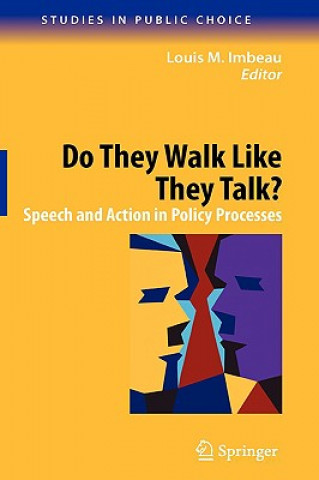
Code: 01383414
Do They Walk Like They Talk?
by Louis M. Imbeau
George Bush s 1988 campaign pledge, "Read my lips: no new taxes," has become a mantra for those who distrust politicians and bureaucrats. The gulf between what political leaders say and do seems to be widening, and in democratic s ... more
- Language:
 English
English - Binding: Hardback
- Number of pages: 306
Publisher: Springer-Verlag New York Inc., 2009
- More about this

188.91 €

Low in stock at our supplier
Shipping in 10 - 15 days
Potřebujete více kusů?Máte-li zájem o více kusů, prověřte, prosím, nejprve dostupnost titulu na naši zákaznické podpoře.
Add to wishlist
You might also like
-

Valentia Lifeboats
25.77 € -9 % -

Kingdom
14.51 € -

Moon and Sixpence
9.20 € -19 % -

Trauma and the Soul
63.20 € -5 % -

Macmillan Readers Prince and the Pauper The Elementary Reader Without CD
11.45 € -15 % -

Achieve: Level 2: Skills Book
24.64 € -

Denes Agay's Learning to Play Piano - Scale Book
11.85 € -9 % -

Apes and Human Evolution
119.15 € -

Lacan and Contemporary Film
29.65 € -

Art of Racing in the Rain
15.74 € -23 % -

Advances in Clinical Child Psychology
164.97 € -2 % -

Interplanetary Mission Analysis and Design
243.94 € -

Věda jde k lidu!
25.97 € -6 % -

Die Freiheitsrechte, insbesondere die Eigentumsfreiheit, als Kontrollmaßstab für die Einkommensbesteuerung.
79.98 €
Give this book as a present today
- Order book and choose Gift Order.
- We will send you book gift voucher at once. You can give it out to anyone.
- Book will be send to donee, nothing more to care about.
More about Do They Walk Like They Talk?
You get 467 loyalty points
 Book synopsis
Book synopsis
George Bush s 1988 campaign pledge, "Read my lips: no new taxes," has become a mantra for those who distrust politicians and bureaucrats. The gulf between what political leaders say and do seems to be widening, and in democratic societies around the world, contributing to an atmosphere of cynicism and apathy among the citizenry. Understanding the characteristics and functions of speech in policy processes is a requirement for trying to overcome this problem; indeed, politicians and bureaucrats spend a good proportion of their time and resources discoursing, i.e., writing, speaking, and publishing. However, there has been scant analysis of political discourse; the aim of this book is to fill this analytical gap, by exploring political speech from a variety of perspectives, including normative, epistemological, and empirical. Incorporating insights from economics, political science, philosophy, and law, and evidence from the United States, Canada, France, Italy, Turkey, and the EU, the book addresses a wide variety of timely issues, including:.§Fiscal discipline in speeches vs budget balance: Is an improvement (deterioration) of the budget balance preceded by a more (less) fiscally disciplined discourse? §Revenues and spending forecasted in budget speeches vs realised budget outcomes: Is there a systematic bias? If so, how can we explain it?§Electoral pledges vs actual realisations: Do governments follow up on their electoral pledges? §Ideological stance in party publications vs spending and revenues of party governments: Do parties of the right and the left speak different languages? How can we validly classify a government as of the left or of the right? Is there a systematic difference between governments of the right and of the left in terms of their policy?§Speeches by central bank officers vs monetary policy: Can changes in monetary policy be predicted by official speeches?§The political business cycle: How can taking into consideration the speech-action relationship strengthen (or threaten) our knowledge about electoral and partisan cycles in public spending?§Other questions explored include: Should policy makers always tell the truth and all the truth? What are the benefits and the costs of transparency? How can we resolve the apparent contradiction between the democratic demand for transparency and the efficiency requirement of secrecy in many policy areas (budget preparation, monetary policy, foreign policy, security, etc.)? Under which conditions is secrecy acceptable in a democratic society? To what extent may deception and lies lead to a breach of trust or to power abuse? What are the most efficient institutional mechanisms to prevent such abuse? Collectively, the authors present new insights for understanding political process and government activity, and suggest avenues for further research.George Bush s 1988 campaign pledge, "Read my lips: no new taxes," has become a mantra for those who distrust politicians and bureaucrats. The gulf between what political leaders say and do seems to be widening, and in democratic societies around the world, contributing to an atmosphere of cynicism and apathy among the citizenry. Understanding the characteristics and functions of speech in policy processes is a requirement for trying to overcome this problem. However, there has been scant analysis of political discourse; the aim of this book is to help fill this analytical gap, by exploring political speech from a variety of perspectives, including normative, epistemological, and empirical. Incorporating insights from economics, political science, philosophy, and law, and evidence from the United States, Canada, France, Italy, Turkey, and the EU, the book addresses a wide variety of timely issues, including:§Fiscal discipline in speeches vs budget balance §Revenues forecasted in budget speeches vs realized budget outcomes §Electoral pledges vs actual realizations §Ideological stance in party publications vs spending and revenues of party governments §The political business cycle§Other questions explored include: Should policy makers always tell the truth and all the truth? What are the benefits and the costs of transparency? How can we resolve the apparent contradiction between the democratic demand for transparency and the efficiency requirement of secrecy in many policy areas? Under which conditions is secrecy acceptable in a democratic society? To what extent may deception and lies lead to a breach of trust or to power abuse? What are the most efficient institutional mechanisms to prevent such abuse? Collectively, the authors present new insights for understanding political process and government activity, and suggest avenues for further research.
 Book details
Book details
Book category Books in English Society & social sciences Politics & government Central government
188.91 €
- Full title: Do They Walk Like They Talk?
- Subtitle: Speech and Action in Policy Processes
- Author: Louis M. Imbeau
- Language:
 English
English - Binding: Hardback
- Number of pages: 306
- EAN: 9780387896717
- ISBN: 0387896716
- ID: 01383414
- Publisher: Springer-Verlag New York Inc.
- Weight: 616 g
- Dimensions: 236 × 163 × 33 mm
- Date of publishing: 01. July 2009
Trending among others
-

Weapons of Math Destruction
12.47 € -16 % -

Laws of Power
30.88 € -25 % -
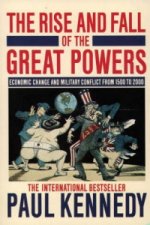
Rise and Fall of the Great Powers
17.99 € -26 % -
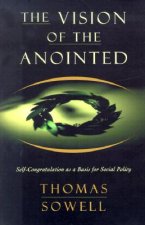
Vision of the Anointed
16.15 € -24 % -
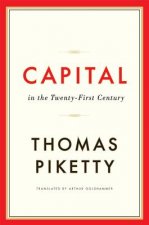
Capital in the Twenty-First Century
39.37 € -4 % -

Last Hours of Ancient Sunlight: Revised and Updated Third Edition
16.05 € -17 % -
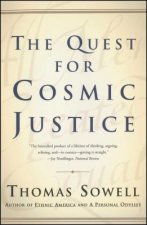
The Quest for Cosmic Justice
13.49 € -30 % -
![What Has the Government Done to Our Money? [Reprint of First Edition] What Has the Government Done to Our Money? [Reprint of First Edition]](https://media.libris.to/jacket/08800577t.jpg)
What Has the Government Done to Our Money? [Reprint of First Edition]
6.64 € -7 % -

Soul at Work
16.05 € -17 % -

Kissinger
20.04 € -26 % -

New Tsar
11.65 € -19 % -
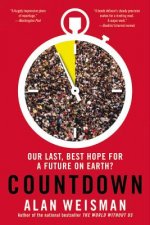
Countdown
32.52 € -

Blowback
16.76 € -

What's Wrong with Protectionism
34.77 € -
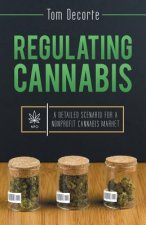
Regulating Cannabis
9.50 € -28 % -

Wealth, Poverty and Politics
33.03 € -20 % -

Accessory to War
26.89 € -14 % -
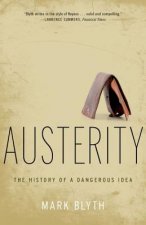
Austerity
14.31 € -18 % -

Five Stages of Collapse
19.63 € -25 % -
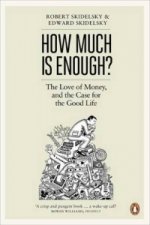
How Much is Enough?
12.26 € -23 % -
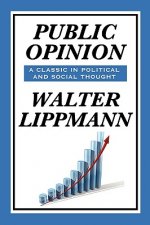
Public Opinion by Walter Lippmann
14.11 € -
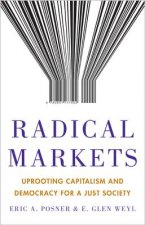
Radical Markets
34.46 € -

Creating Public Value
51.44 € -1 % -

Chasing the Scream
14.62 € -24 % -

Breaking the Vicious Circle
43.15 € -

Cortical Visual Impairment - Approach to Assessment
87.14 € -6 % -

Preserving Biodiversity
9.60 € -

In Defense of Degrowth
25.66 € -

Oxford Handbook of the Welfare State
41.82 € -9 % -

Columbine High School Massacre
29.86 € -
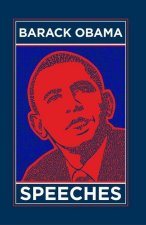
Barack Obama Speeches
19.42 € -26 % -

Confessions of a Greenpeace Dropout
45.10 € -

Production of Money
10.83 € -20 % -

American Age
69.13 € -5 % -

American Power And The New Mandarins
25.05 € -
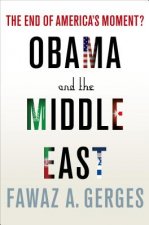
Obama and the Middle East
17.28 € -18 % -

Millipedes and Moon Tigers
32.31 € -

Monetary Nationalism and International Stability
13.49 € -

Is Democracy Failing?
16.05 € -21 % -
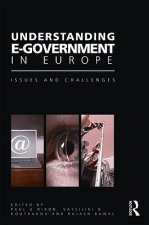
Understanding E-Government in Europe
72.20 € -

Fairness versus Welfare
65.25 € -
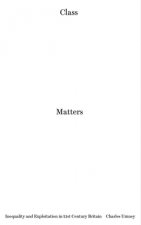
Class Matters
28.63 € -

Carbon Democracy
16.05 € -24 % -

Map and the Territory 2.0
15.43 € -17 % -

Watchdog Still Barks
30.88 € -

Foreign Policy Begins at Home
21.26 € -

Environmental Policy
64.84 € -

Stop! Armed Police!
32.11 € -9 % -

Social Construction of International Politics
44.48 €
Collection points Bratislava a 2642 dalších
Copyright ©2008-24 najlacnejsie-knihy.sk All rights reservedPrivacyCookies


 15549 collection points
15549 collection points Delivery 2.99 €
Delivery 2.99 € 02/210 210 99 (8-15.30h)
02/210 210 99 (8-15.30h)